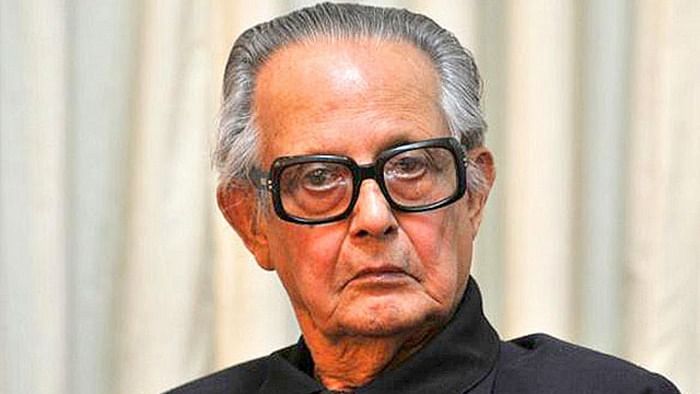
Visiting the ‘R K Laxman@100’ exhibition last week was like a virtual walk down memory lane. Each cartoon on display had a distinct story and a context which seemed relevant even after so many years. Personally, it stirred many memories.
I was fortunate enough to breathe the same air as the great cartoonist for about 30 seconds in the early 90s when I was with the Times Group in Bombay. Laxman had retired by then, but was still churning out his pocket-size masterpieces on a regular basis.
Even before I could bend and touch his feet in obeisance in the traditional style, the lift doors opened and he was gone, leaving me forlorn for the rest of the day.
That was the closest I came to within a touching distance of Rasipuram Krishnaswamy Laxman.
But my career ran parallel to his, but in a different era and area of journalism and, of course, to a much lesser degree of fame and fortune. Laxman began his career with the Free Press Journal in the 50s and I followed suit more than a generation later into the same organisation as a trainee sports journalist.
Laxman moved to the Times Group soon after and I followed suit again (via a little detour in the form of a brief tenure at the Indian Post) and the fact that his office was in the same building gave us 20-somethings a rare thrill.
Even after so many years, some of us are still wondering how Laxman made millions of Indians smile every morning through his bald and bespectacled ‘Common Man’ in a crumpled dhoti and checked kurta.
Laxman drew cartoons for more than half a century during which he took on the rich and famous, powerful and popular, royalty and rogues alike. He lampooned them, satirised their whims and fancies, made fun of their omissions and commissions and exposed their hypocrisies and idiosyncrasies without indulging in below the belt antics.
All this in a pocket-size cartoon not bigger in size than a normal mobile phone, many without captions except for his famous ‘PSST’.
I can’t remember any of his cartoons triggering a row, let alone a murmur of a protest or a shrill call for a ban. Laxman once said, “he can dip his brush effortlessly till there are traffic jams, clogged drains and poverty in the country”.
Laxman respected ‘freedom of expression’ and ‘freedom of press’ in his own way, with a sense of pride and great dignity, and more importantly, with immense responsibility, much like how he upheld many unwritten and invisible tenets of the trade.
R K Laxman, the irascible genius, may have gone, but his Common Man is still around us.
Watch the latest DH Videos here: